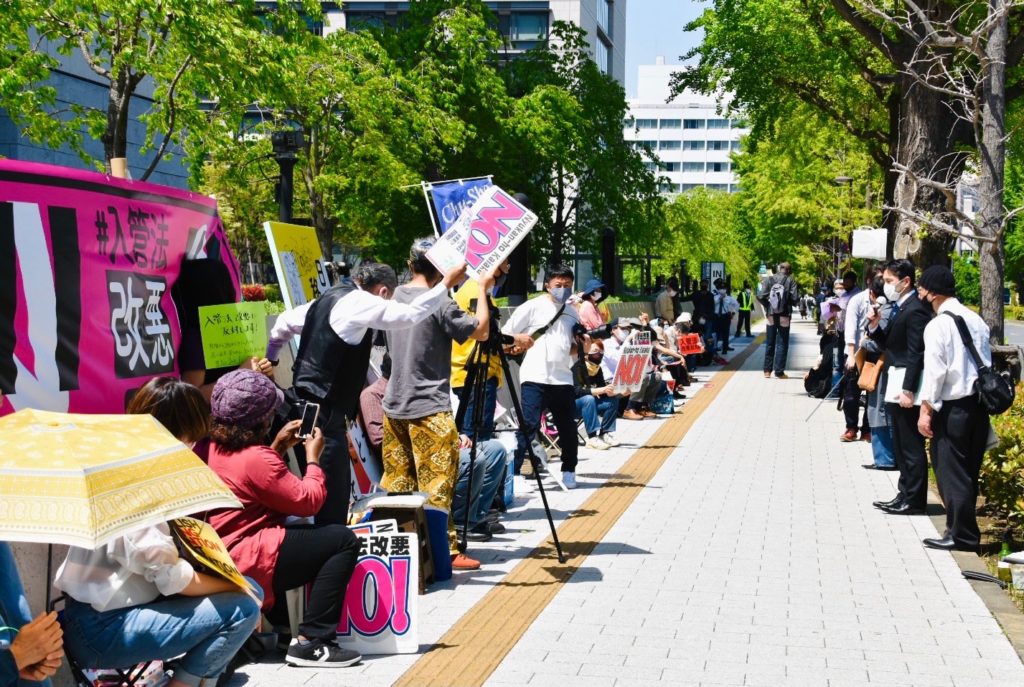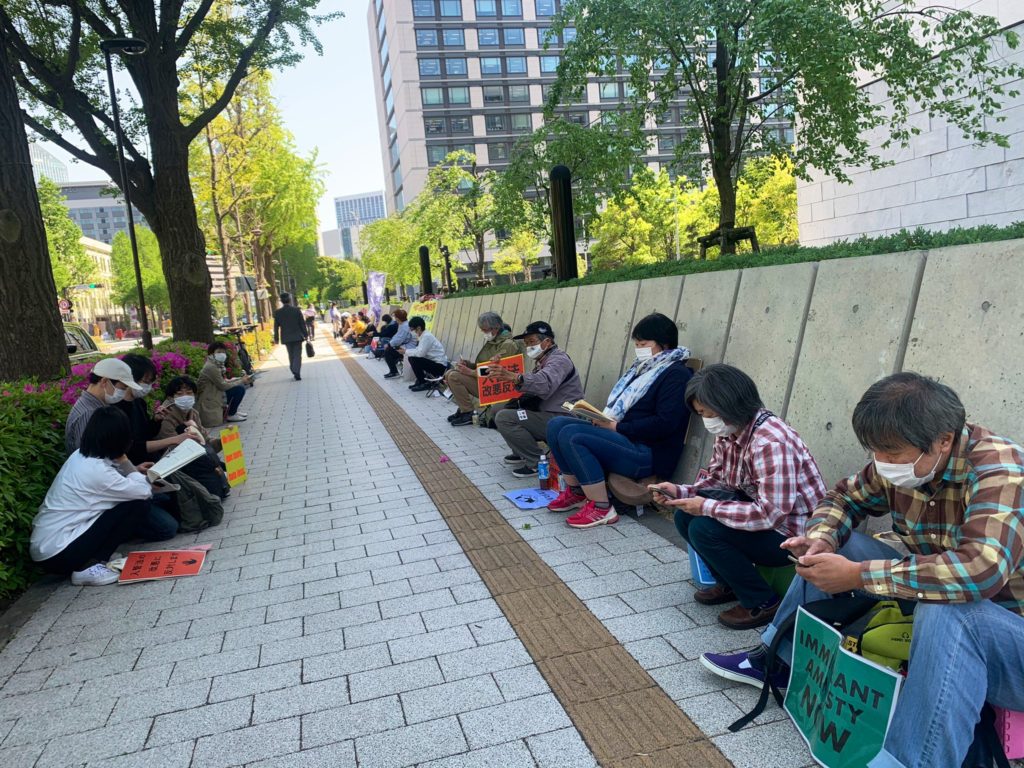Rising My Voice as a Student – An Interview with ID25 Yohana Miyajima who works on solving the Immigration issue | Part2
Following up on the last article, we interviewed Yohana Miyajima, who is tackling immigration problems.
In the last article, vol. 22 part 1, she talked about the current activities and what’s happening in Japan, called immigration problems.
In this article, vol. 22 part 2, we asked about how she has been feeling while keeping on with the activities and how to approach the social issues, including immigration problems.
Please read the article to find out her activities and the relationship with Christianity!
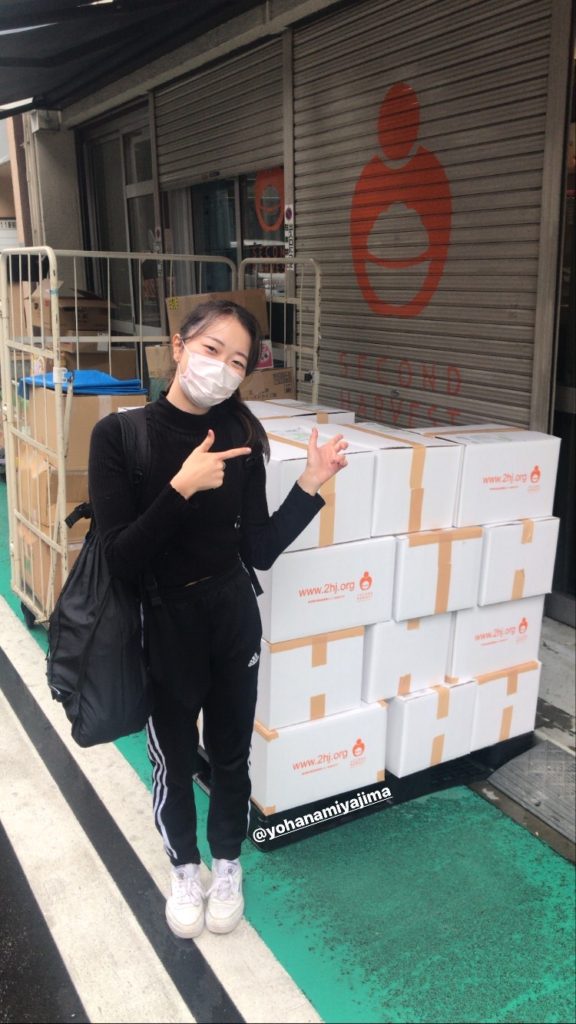
Q1. How did you feel when you started your activities?
Honestly, I had a strong feeling of anxiety too when I took action for the first time. However, I could take action because of the words by Rosa Parks, who advocated for anti-racism activities against black people: “you must never be fearful about what you are doing when it is right.” This phrase, along with the encouragements of families and friends, gave me courage.
Q2. When you “started actions for the first time,” did you start it only by yourself without any support?
No, I honestly think I wouldn’t have done any of this without the support I had. In the beginning, I participated in the sit-in demonstration hosted by FREEUSHIKU and the NPO, Solidarity Network with Migrants Japan (SMJ), which has dealt with the immigration problem for decades. However, I had to leave school early since the sit-in demonstration was held around 2pm or 3pm. As my teacher quickly allowed me to leave school early for the event, the support and encouragements I received from my teachers encouraged me a lot. When I participated in the demonstration, I met a student from Sophia University who was researching the immigration problem for her thesis. With her encouragement, I approached the representative of SMJ and told them that I’d like to host a protest in the evening or at night, to make it possible for students and more citizens to join in. When I asked, the representative replied that they would love to help me make the protest possible. Although I was the host of the protest, the members of SMJ played a significant role in making this possible through negotiating with the police as well as communicating with the media about the use of my personal information. I truly believe that I wouldn’t have been able to do any of this without the support from others including teachers who encouraged me and my father, who came to the protest.
Q3. While you continue these activities, have you ever felt mentally drained?
I sometimes get disappointed because this is such a devastating problem and I wonder how the current status will be changed, why such a thing is happening in Japan in this era, and why the government and immigration center don’t do anything but ignore it. However, even so, discussing the issues with members and taking action together with the support groups, lawyers, and diet members that have been working on this problem for decades, I realized that I’m not the only one confronting these issues. And when talking with those who are involved in this problem, I find hope that the situation will change someday if we tackle this problem together. In this sense, I’m inspired and encouraged a lot. I guess I could continue these activities because the inspiration outways the disappointment.
Q4. Have you ever realized someone who hasn’t dealt with this problem got interested in the immigration problem or took action?
Yes, there were many instances. When I go to ICU, people would come up to me and tell me: “I saw the #JusticeforWishma on your instagram,” “I want to participate in the demonstration together if there’s a chance,” or “I want to join IRIS because I’m interested in the refugee issues.” Recently, I feel that more people are aware of this issue as major media companies have taken this topic. Before, if I asked, “do you know anything about Wishma?” or “do you know about the immigration issue?” most replies would be “What is it?.” However, their reactions have changed since many have heard of Wishma from TV or newspapers.
Q5. You said that hashtag campaigns and SNS can be used easily to participate in the action. However, some people cannot take a step or hesitate to participate, though there are many platforms to speak out and motivations to study. Do you have anything to say for those people?
I can understand them really well because I was in the same situation before. It’s easy to worry about what others would think or what the opposing side would do to you. As I previously mentioned about when I started my activities, I was continuously inspired by the quote by Rosa Parks at times when I felt scared or anxious. If you’re doing the right thing, you won’t be afraid of what others might think, and in the end it may affect those who oppose it, and may create a better place for this world and society. When I think this way, I have the courage to act. Refugees and immigrants don’t have a way to speak out about politics because they have neither the status of residence nor voting rights. You should take action if you think that you can help someone by joining a hashtag campaign or taking actions as someone with voting rights. Although it is scary, if one person initiates an action, others can participate in it easily, and it will spread as a “Chain Reaction.” Although you need bravery, I encourage you to take the first step because you will realize that you are not alone.
Q6. Do you have anything that those who are unsure how to study immigration problems for their complexity should know or learn first?
The immigration problem is severe, including the problem of the long-term detention and refugee acceptance system. Still, I think the problem is that the Immigration Bureau does everything from accepting refugees to selecting who to detain without checks by third parties or judiciary. I think the solution would be to change the system into the one with consideration for human rights by conducting refugee recognition and checking by a third-party organization with specialized knowledge on international law. According to lawyers and experts, the immigration law should be revised not partially but fundamentally.
This problem is complicated and hard to understand because it consists of multiple layers. However, when researching, I would like you to refer to reliable materials such as the major newspaper companies. While writing my senior thesis in high school, I interviewed a lawyer and used sources from Google Scholar. I also recommend the documentary by NHK about undocumented children in Japan, from which I learned a lot. Since this problem has many layers, the more you know about it, the more shocked you will be at the brutalness of the problem. I hope you will continuously explore deeply instead of being satisfied with knowing a little.
Q7. Since you are a Christian, does Christianity influence you when tackling immigration problems?
My identity as a Christian influences me since I don’t think I would have engaged in these activities if I was not a Christian. As a Christian, I treasure the phrase “love God and love your neighbor as yourself.” The neighbors are not only Japanese but also every individual with various backgrounds. It is also essential to love refugees and immigrants like myself in this sense. One more scripture that remains in my heart is “whatever you did for one of the least of these brothers and sisters of mine, you did for me,” which Jesus said. This means that what you did for those in vulnerable situations, such as those in prison, foreigners who don’t have the status of residence, and the homeless is what you did for Jesus. Therefore, as a Christian, I value interacting with love to those in a vulnerable situation, which is my biggest motivation. Whenever I felt anxious about the future during my activities, I prayed and was strengthened by prayers and scripture. Thus, I can say that my identity as a Christian played a role in doing this activity.
Q8. Do you have anything you found out or realized during the activities or want ICU students to know?
What I found out while I’m working on activities is that there is a significance in speaking up as a majority who have the voting right. There are many platforms to speak up, such as SNS and elections, so using those platforms may be the first step to a peaceful society in which no one is left behind.
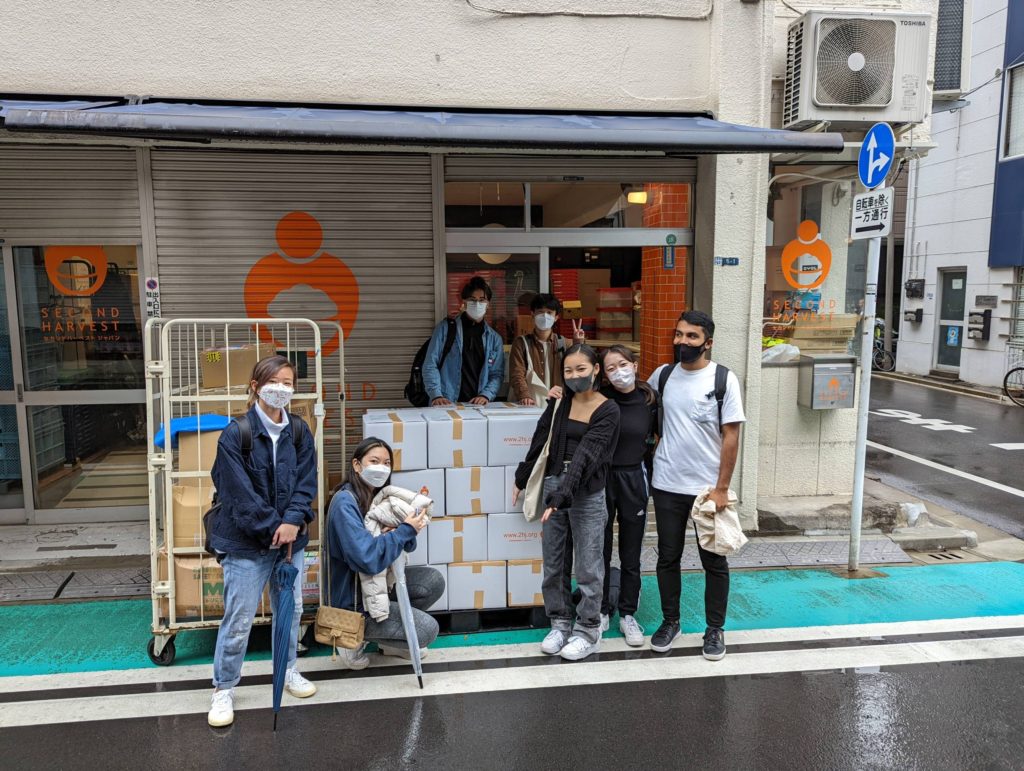
Q9. What do you want to bring to society?
Although the Immigration Control Law Amendment was abolished, the current Immigration Center is no different from the one that left Wishma to die. To prevent the reoccurrence, I request probing into the truth and thorough prevention of recurrence by disclosing videos. We, everyone, have a voice. Take a step to confront injustice in this society by using our voices.
Q10. Please tell us what you want to do and challenge yourself from now on!
I launched a student group for refugee and immigrant support called IRIS (ICU Refugee and Immigrant Solidarity). Please contact me or Nicholas Kojima (ID24) if you’re interested. This circle plans to have many activities such as meetings with detainees in the immigration detention center, food delivery, and Japanese classes for refugees and immigrants in Japan, requests to revise the immigration law based on the international law, and more. I demand the truth of Wishma’s case by disclosing recordings as well as thorough prevention of recurrence.
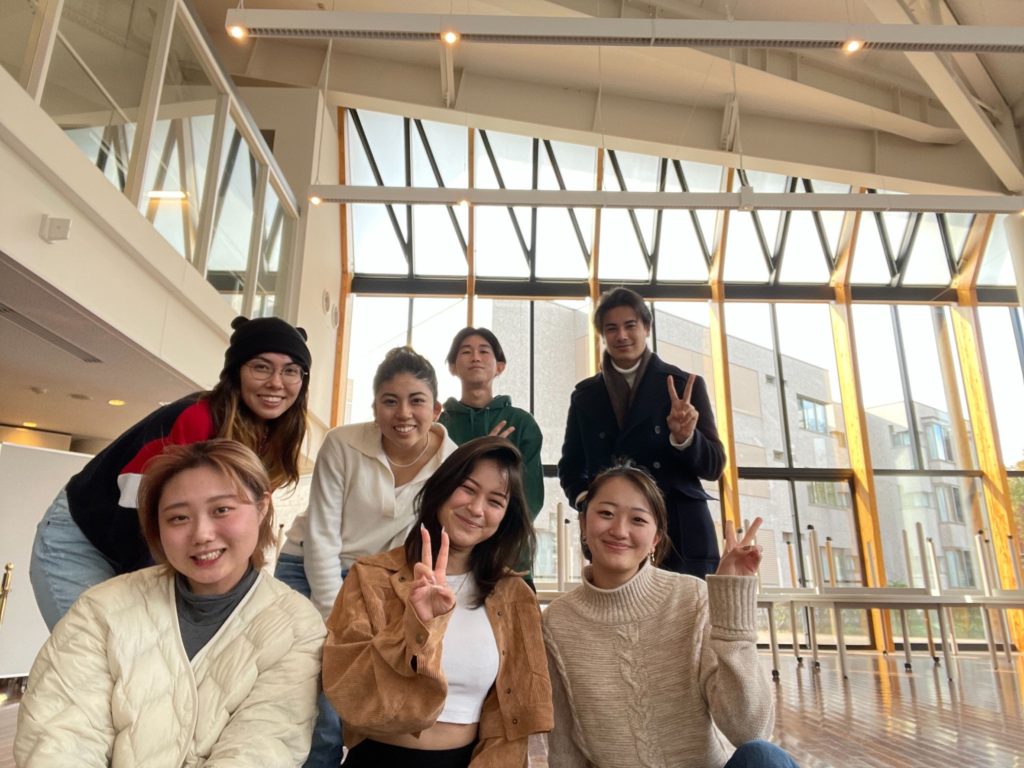
Thank you for reading our articles on Yohana Miyajima!
ICONfront organizers also have an update: we have launched our very own email newsletter!
You can subscribe by (1) going to the ICONfront website, (2) inserting your email address (preferably gmail) into the subscription box below and press the subscribe button, (3) check the automatically sent email from ICONfront in your inbox, click the link, and you’re done!
